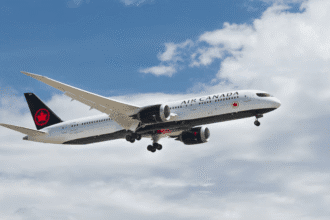Reiterating a divisive and historic action from past years, the US travel ban 2025 policy marks a major change to the immigration policies of the country. Recently announced, this policy offers more general, more precisely defined guidelines meant to resist legal challenges and impact people from 12 different nations. Travelers, immigration experts, legislators, and companies engaged in foreign travel or visas all depend on an awareness of this regulation. The breadth of the policy, the impacted nations, the justification, legal background, and pragmatic consequences will be broken out in this paper.
- In what main ways does the US Travel Ban 2025 Policy differ from past iterations?
- Which nations are under focus for the US Travel Ban 2025 Policy, with regard to restrictions?
- Why Is the US Travel Ban 2025 Policy Being Proposed?
- How Does the US Travel Ban 2025 Policy Impact Visa Applicants and Individuals?
- Legal Obstacles the US Travel Ban 2025 Policy Might Run Against
- How have targeted nations responded to the US Travel Ban 2025 proposal?
- What Actions do people and Companies take?
- In summary, what prospects surround the US Travel Ban 2025 Policy?
In what main ways does the US Travel Ban 2025 Policy differ from past iterations?
Introduced during President Trump’s first term in 2017, the original travel ban suffered major legal challenges. Given its emphasis on seven mostly Muslim nations, detractors labeled it a “Muslim ban.” Court decisions questioned it on constitutional grounds, mostly claiming it discriminated based on religion.
Drawing lessons from these results, the US travel ban 2025 policy has been carefully developed to prevent like legal weaknesses. The new approach targets a larger list of nations from several areas, including the Middle East, Africa, and the Caribbean, rather than specifically targeting Muslim-majority countries overtly. To guarantee legal robustness, it also incorporates thorough exemptions and better phrasing.
Unlike the first ban, which ran 90 to 120 days, this current one has no expiration date, implying a more permanent change in immigration policies. It also brings a tiered system of limitations, with minor restrictions on seven nations and the toughest prohibitions applied on twelve countries. This graded approach seeks to better match restrictions with expected national security threats.
Experts have pointed out that the more general the policy is and the explicit the exemptions, the less the possibility of successful court challenges. Still, there are unresolved issues about some criteria, like visa overstaying thresholds.
Which nations are under focus for the US Travel Ban 2025 Policy, with regard to restrictions?
Afghanistan, Iran, Somalia, and several others, mostly found in the Middle East, Africa, and the Caribbean, are the twelve nations under the US travel ban 2025 program experiencing the toughest restrictions. These nations have most strictest entrance restrictions.
Seven more nations—including Venezuela and Cuba—also have limited limitations on some kinds of travel or visa issuing. This two-tiered structure seeks to strike a compromise between diplomatic and economic factors as well as security issues.
Fascinatingly, save for Iran, many of the nations on the outright ban list are not named as state sponsors of terrorism by the US government either. This suggests a more general evaluation approach, including elements like dangers related to terrorism, rates of visa overstaying, and maybe other security indicators.
Visa overstay rates have drawn considerable debate, nevertheless. The policy lists some nations based on a high overstay rate, but does not define exactly what qualifies as a problematic threshold. This ambiguity could encourage legal lawsuits challenging the equity and openness of the policy’s standards. Read another article on Trump’s second term
Why Is the US Travel Ban 2025 Policy Being Proposed?
Emphasizing national security as the engine of the US travel ban 2025 policy, President Trump has cited events like an attack in Boulder, Colorado, when a man allegedly tossed Molotov cocktails at protestors, as grounds for imposing tighter limitations.
Another important factor is immigration compliance, especially regarding people overstaying their visas. The policy seeks to deter too long visa overstays by limiting travel from nations experiencing high incidences of such events.
From a national security standpoint, these issues are valid, but their implementation calls into doubt the policy’s consistency and equity. The assailant in Boulder, for instance, came from Egypt, a nation not on the restricted list. Critics contend that more openness and well-stated standards would help the policy’s criteria.
Nevertheless, under current US law, the president has great power to control immigration and decide admissibility, therefore supporting the legal basis of this approach.
How Does the US Travel Ban 2025 Policy Impact Visa Applicants and Individuals?
Beyond national security, the US travel ban 2025 policy affects a broad spectrum of visitors and visa applicants. Students caught in administrative processing or awaiting visa authorization could have major delays or denials.
Diversity Visa Lottery winners who have already paid fees and gone to interviews may find themselves unable to get visas under the new limits. For those who had expected legal admission into the United States, this generates uncertainty and frustration.
Furthermore, impacted are H-1B visa holders hired by American organizations but now outside the US, and EB-5 investors, foreign nationals who invest at least $1 million in US businesses to earn green cards. Many of these people might not be able to travel or return until much later on.
The legislation adds further complexity for companies depending on international talent, educational institutions, and employers. They have to be ready for possible staffing shortages or interruptions brought on by delayed visa processing.
Legal Obstacles the US Travel Ban 2025 Policy Might Run Against
Legal experts agree that even if the new policy is more legally strong than its predecessors, several features could still attract problems. One such problem that can draw attention in lawsuits is the uncertainty about visa overstay thresholds.
Unlike the first ban, which set off many demonstrations and several court battles, the new one has been deliberately crafted to lower the possibility of effective legal resistance. A more general scope and clearer exemptions help it avoid charges of religious prejudice.
Immigration lawyers warn, nonetheless, that maintaining the validity of the program depends critically on openness and well-defined standards. Should the government overlook these specifics, courts may have cause to step in.
How have targeted nations responded to the US Travel Ban 2025 proposal?
Reactions to the policy have been conflicting all around. Countries such as Venezuela have denounced the US government, charging it with supremacist beliefs. On the other hand, Somalia has shown openness to diplomatic communication to handle issues.
Such answers highlight the complicated diplomatic surroundings of the policy. For the US administration, juggling security concerns with international relations still presents a difficult chore.
What Actions do people and Companies take?
Travelers and stakeholders must remain informed and act early, given the wide and possibly disruptive consequences of the US travel ban 2025 policy. Visa candidates should keep a close eye on their applications and speak with immigration lawyers to find out how the prohibition can affect them. Employers and educational institutions must create backup plans for changes in staffing or enrollment brought on by visa delays. Visa lottery winners and investors should consult attorneys to investigate choices and solutions. By keeping ahead of changes and consulting professionals, one can lessen the effects of this policy and let people and businesses negotiate uncertainty.
In summary, what prospects surround the US Travel Ban 2025 Policy?
A major and long-lasting change in US immigration law is the US travel ban 2025 policy. It shows a government resolved to impose more stringent policies depending on immigration compliance problems and security concerns.
Although more legally sound than past prohibitions, the success of the policy will rely on its execution, openness, and how successfully impacted areas adjust. For everyone affected by the restrictions, vigilance and readiness will be vital.
In the end, this approach emphasizes how US immigration control is changing in response to issues of world security. Knowing its clauses and acting boldly will let people, companies, and legislators properly negotiate this challenging terrain.








